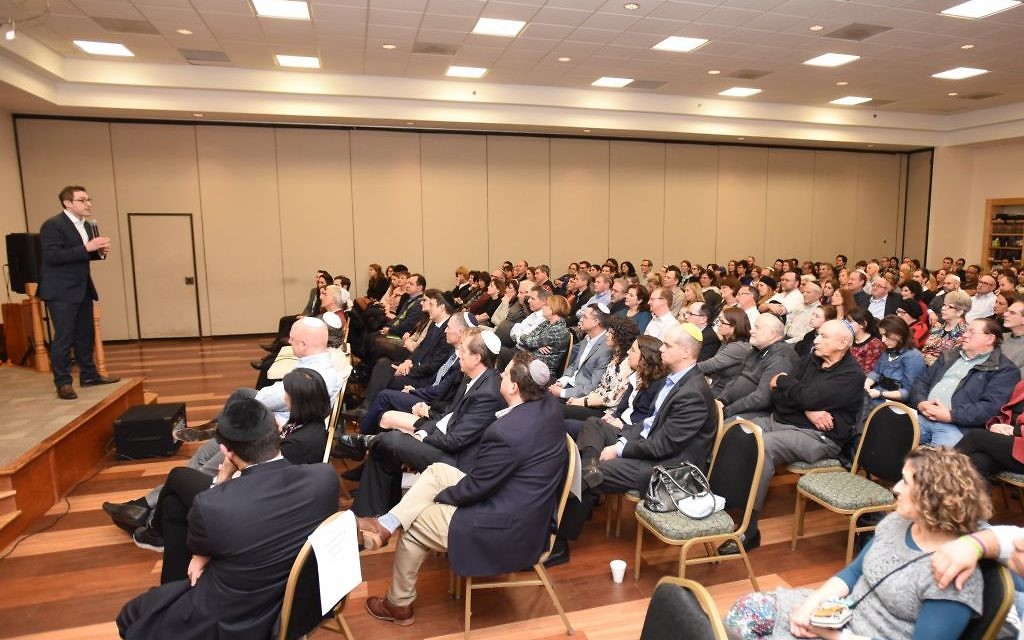Congregation Ariel: Remember Kindness to Start Sweet Year
A perusal of G-d’s Top 10 memories shows an outstanding dedication to His covenant with His children Israel.

Memories. They are my narrative. They also express the psyche I have crafted for myself.
Some memories I have chosen to forget. Others I have chosen to remember, and I have chosen how I remember them. They are, after all, my memories.
They are the source of my fears and my motivations. I love to share certain memories, and others I hide in a deep, dark place inside me. Know my memories, and you know me.
Get The AJT Newsletter by email and never miss our top stories Free Sign Up
Does G-d also have memories? The answer is yes, and 10 of them are enumerated in the Mussaf service of Rosh Hashanah. Why are G-d’s memories part of the Mussaf service? Perhaps G-d is offering us a chance to know Him.
A quick perusal of G-d’s Top 10 memories (as it were) shows an outstanding dedication to His covenant with His children Israel. G-d says of Israel: “He is my precious son, a delightful child. Whenever I speak of him, I remember him more and more. My inner self yearns for him. I will surely take pity on him.”
What do G-d’s memories tell us about Him? That He is not harsh and demanding. That He is not “out to get us.” Just the opposite. He sounds like a G-d who is out to get back together with us.
What about all the indifference, misdeeds and even crimes that we have committed? Those are not part of G-d’s memories. Instead, we read that G-d remembers the covenant with Abraham, Isaac and Jacob and how He yearns to fulfill His covenant.
Isn’t it interesting? A list of G-d’s memories shows Him obsessed with us and our well-being.
Where does He show up in our list of memories? For many of us, our memories have to do with our accomplishments or failures or negative things that occurred to us.
How many of our memories have to do with kindnesses shown to us by others? We are all beneficiaries of acts of kindness. Not just from G-d, but also from parents and teachers, friends and neighbors, casual acquaintances and even strangers.
Do acts of kindness make up our primary memories, or do acts of pain and anger?
A former chief rabbi of Israel, Rabbi Yisrael Meir Lau, wrote a memoir a few years ago of his experiences as a child survivor of the Holocaust. What is outstanding to me is that, in front of the backdrop of the horrors of the Holocaust, Rabbi Lau’s book focuses on the many people who showed him kindness and literally saved his life. Foremost is his older brother, Naftali, but also included are a range of family members, concentration camp inmates, friends and strangers, Jewish and not, who all took pity on the boy.
Rabbi Lau focuses not on bitterness over the murder of his parents and the loss of his very childhood, but rather basks in the love shown to him even by strangers.
If there is anything to feel guilty about as we approach the High Holydays, it is our choice of memories. To remember pain is to live in pain. To remember anger is to live in anger.
These are not G-d’s memories. G-d says, “I remember you for the kindness of your youth … how you followed me in the wilderness.”
Did we really have a chance to do otherwise? Where else could we have gone? G-d, however, chooses to remember our sojourn in the desert as an act of kindness.
Surely, we can choose to live our lives as beneficiaries of kindness — from G-d and from those all around us.
May we all reflect on this past year and the kindnesses shown us, thereby guaranteeing us a sweet new year.
Rabbi Binyomin Friedman is the spiritual leader of Congregation Ariel.




comments